Cycling the Camino de Santiago is a fantastic alternative to walking, offering freedom, flexibility and the chance to experience more of the route in less time. Whether you’re travelling solo, with friends or as a family, cycling allows you to enjoy the landscapes, culture and spirit of the Camino at your own pace. It allows you to cover more ground quickly and is particularly convenient if you’re travelling with children.
If you plan to cycle one of the Camino de Santiago routes, this guide will address common questions and provide tips to make your journey enjoyable.
-> See our article if you wish to Cycle the Camino on an e-bike instead.
Getting Started: How Cycling the Camino Works
You may wonder how it all works once you’ve decided to cycle the Camino and booked your self-guided trip.
Is Cycling the Camino Right for You?
Cycling the Camino de Santiago is a wonderful adventure, but it’s best suited for those who already have some cycling experience. If you know how to handle basic bike repairs—like fixing a puncture, reattaching a chain or securing pedals—you’ll be well-prepared for the journey ahead.
If your trip lasts more than a week, consider adding one or two rest days, especially if you’re cycling the Camino with children. Rest days give your body time to recover and offer a lovely chance to explore the beautiful towns and cities along the way, such as Burgos, León or Porto.
Preparing Your Bicycle
Your Camino bike will be delivered to your first hotel, ready for your first day of cycling. It will arrive securely packed in a box. This means you’ll need to carry out a few simple tasks before setting off: straighten the handlebars and attach the pedals. If you’re unsure whether you need to bring your own pedals, you’ll find more details here.
Clear instructions will be provided to help you with this.
Before you begin your journey, make sure to check that everything is working as it should. If you notice anything wrong, it’s important to report it right away so your bike can be replaced if needed. Think of it as similar to checking a hire car before driving off—better safe than sorry.
If a technical issue occurs throughout your Camino, we collaborate with the Bike Rental Company to assist. Their recommended steps are as follows:
- Visit a local bike shop for repairs.
- Opt for a replacement only if repairs are not feasible and a replacement is available.
While your bike rental includes the essentials, you may still want to think about personal items and clothing. Our article on what bike gear you should bring for cycling the Camino covers this in more detail.
After the Journey: Returning Your Bike
Once you reach Santiago de Compostela and complete your cycling adventure, your bike should be returned to the designated bike shop in the city. All the necessary information, including shop details and return steps, will be included in your Client Travel Portal.
Handling Bike Accessories During Your Trip
If you find during your journey that you don’t need some of the bike accessories—such as panniers or other add-ons—you can pack them in your suitcase. This ensures they’re transported safely with your luggage, avoids extra costs, and reduces the risk of losing important gear.
Any missing or damaged accessories—like pedals, panniers, or other supplied items—will incur surcharges which are highlighted below. So, it’s important to return all items in good condition and avoid leaving anything behind at your hotel.
Note: Bike rentals require a minimum hire period of 3 days (4 nights).
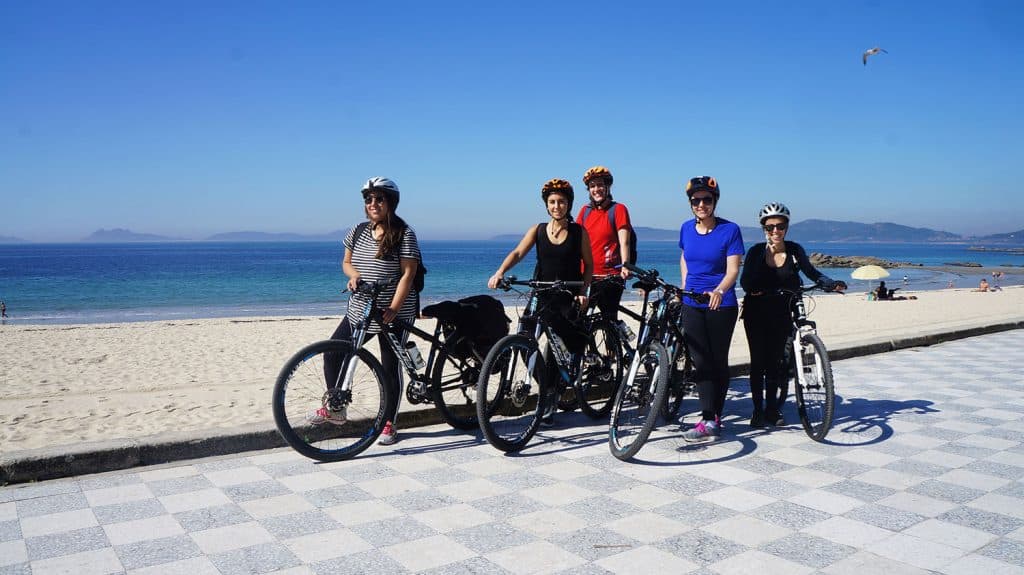
What’s Included with Your Bike Rental
Your Bike
You’ll receive an Orbea Alma H20 (MTB – Mountain Bike) designed for the Camino’s varied terrain. Key features include:
- Aluminium frame
- 12-speed gearing
- 29-inch wheels
- Disc brakes
- A rack and reflectors are also included.
*Ensure you provide your exact height when booking so the bike can be customised for you.
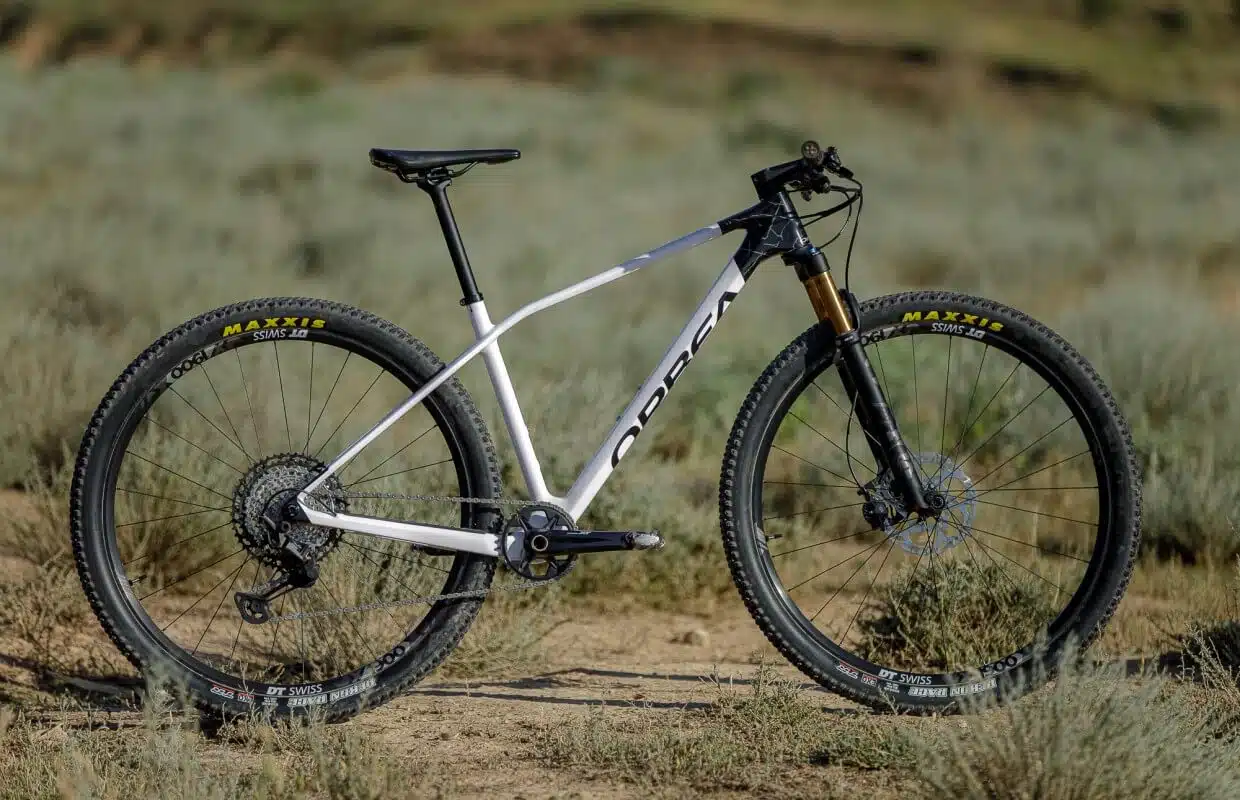
Size Guide:
MTB Standard – Orbea Alma H20 (29″ wheels)
Bikes are assigned based on the rider’s height to ensure comfort and safety.
After your booking is confirmed, we will ask for your height and other basic details so we can assign the most suitable bike size for you.
All bikes are prepared and adjusted in advance to make sure you have a comfortable experience on the route.
Bikes for Children
- Minimum Age: From 7 years old. Cycling more than 20 km a day is not recommended.
- Size: Children’s bikes are measured by wheel dimensions rather than frame size. Let us know the bike size your child uses at home to ensure the best fit.
- Helmet and Reflective Vest: Mandatory for children. You must bring your own as these are not provided.
Bike Seats for Chidren
- Maximum Age: 7 years, provided the cyclist is an adult.
- Weight Limits: Suitable for children weighing between 9 kg and 22 kg. We recommend a stricter range of 12 kg to 19 kg for optimal comfort.
Regulations: Follow the DGT (General Directorate of Traffic) cycling rules. You can check them here: DGT Cycling Rules.
Pannier Pack
The bike comes with a waterproof pannier pack containing a repair kit. The kit includes a pump, tools, a spare inner tube, and a patch kit with basic maintenance instructions. The model is Ortlieb City roller waterproof (20Lx2).
Helmet
A helmet is included with your rental, or you can bring your own. Spanish law requires helmets for all cyclists in non-urban areas, and children under 16 must wear one at all times. Exceptions apply during steep descents, very hot weather, or for medical reasons.
Important Note: Additional accessories like lights, reflective gear, or phone or bottle holder holders are not provided. Feel free to bring your own.
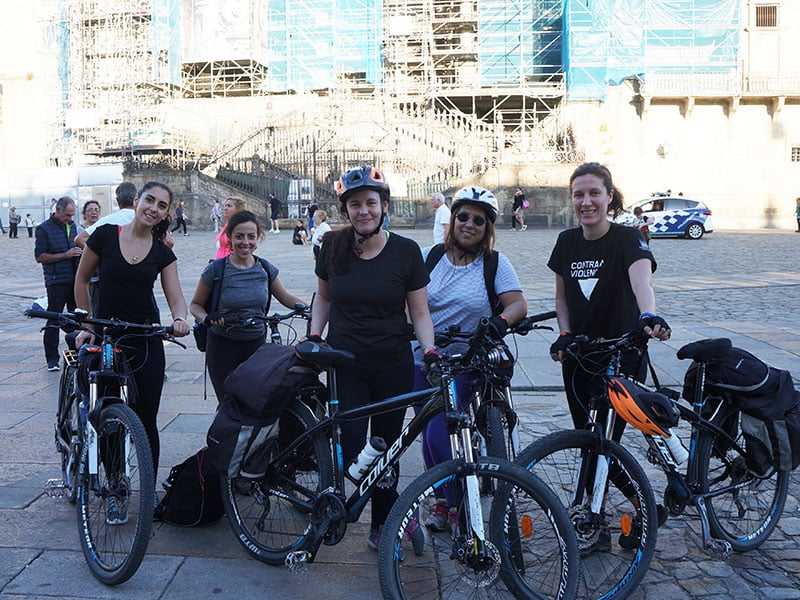
Support and Assistance
We carefully plan your cycling distances, considering the terrain and shared trails with walkers.
Customisation
Please discuss adjustments with our team during the quotation stage if the planned distances seem too short or too long.
24/7 Assistance
For emergencies or advice, you’ll have access to a 24/7 assistance number and a support contact for the bike provider. Please note that our Bike Assistance includes arranging a transfer for you and your bike to the nearest repair shop. The Bike Rental team will provide their expertise and guidance to help resolve any issues.
Bike Repairs
Your repair kit includes everything you need to handle basic issues like flat tyres. If your bike needs further repairs, you will be responsible for covering the cost.
Sharing the Trail
Be mindful of walkers on the Camino. Show respect and give way when necessary.
Bike Cleaning and Maintenance
It’s a good idea to clean your bike daily, especially if the trails are muddy. Keeping the bike in good condition will make your journey smoother and more enjoyable.
Bike Fees and Surcharges
Be aware of potential charges for lost or damaged items, including:
- Bike theft or loss: €1,149.50
- Pannier damage or loss: €60.50
- Helmet damage or loss: €36.30
- Toolkit theft or damage: €36.30 (individual tools) or €60.50 (entire kit)
- Bike lock loss or damage: €15
- Handlebar bag theft or damage: €60.50
- Late returns: €23 per day
- Bike collection at the customer’s hotel rather than a shop (if you finish in Santiago): €38
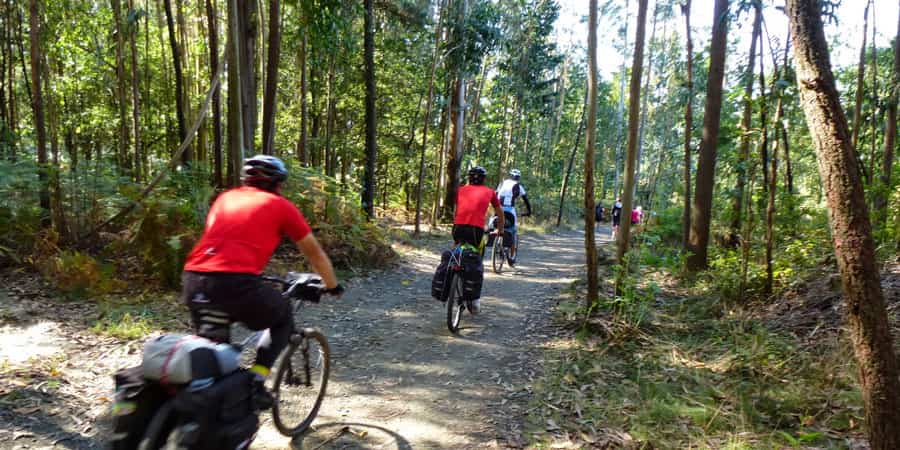
Cycling the Camino is an incredible adventure, combining physical activity with cultural exploration. Whether travelling solo, with friends or as a family, you’ll create lasting memories as you pedal along this historic route. See our article if you wish to Cycle the Camino on an e-bike instead.
For more information about the Camino de Santiago routes or to book your trip, contact us. Plan your trip effortlessly and get an instant quote with our Camino Planner. Happy cycling!
To help you plan your Camino by bike with confidence, explore our key guides below:
👉 CaminoWays bike rental: types of bikes, sizes and included services. Choose the right bike for your route👉 Camino E-bike FAQs for the Camino: requirements, distances and tips
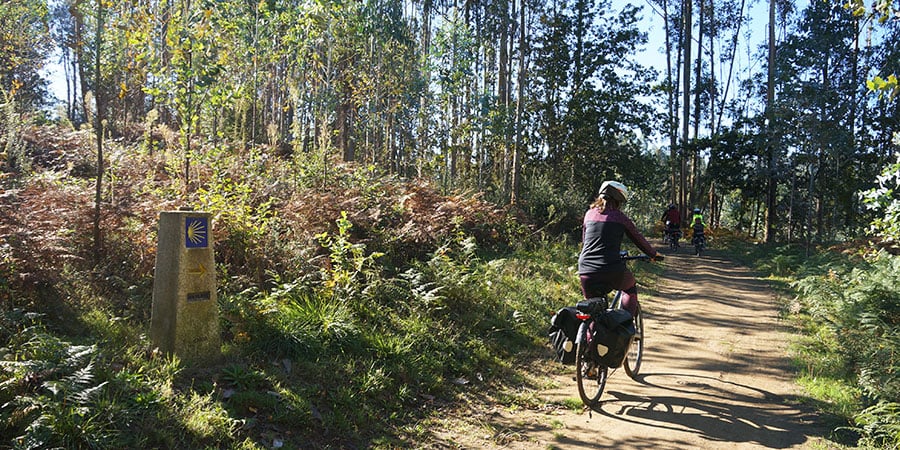
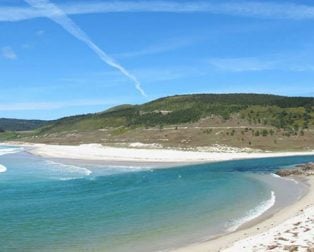
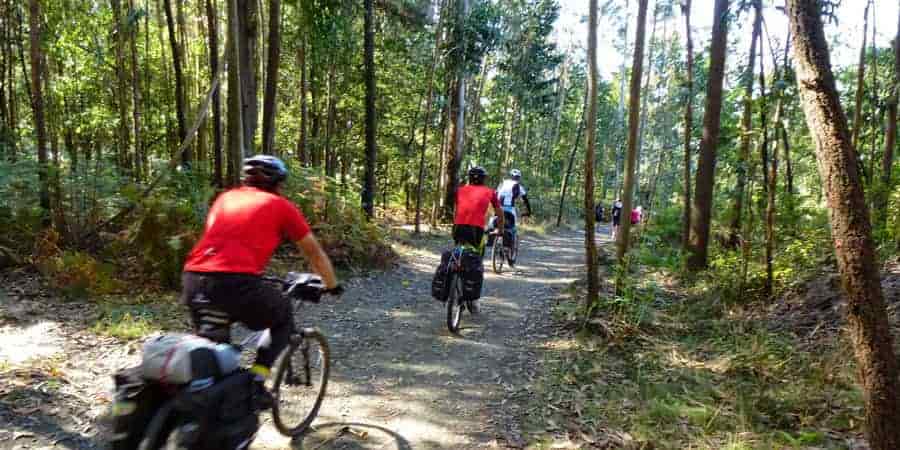
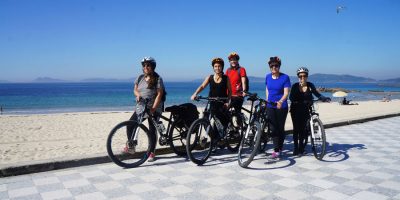
You mentioned that it is best to bring charger in case it is needed along the trip, are there accessible DC outlets along the way for public use?
What is the average duration of cycling the Camino from St-Jean-Pied-de-Port to Santiago di Compostela ? Is this the best route for cycling?
Hi Kevin, usually you will charge the bike at night in your hotel and you should not need to charge it throughout the following day. However, the charger will be in your saddle bag so you can always ask in a cafe or restaurant should the need arise, but it’s not likely. There are no official charging outlets on the route.
The French way is the best route for cycling and you would be doing about 40km a day. You can find more information about the route here: https://caminoways.com/camino-frances/camino-frances-from-saint-jean-to-santiago
Feel free to contact us if you have any more questions!
Do you provide bikes for the Portuguese Camino starting in Porto?
Hi Peter, thanks for your message. Yes, we do, you can find the route here: https://caminoways.com/camino-portugues/camino-portugues-coastal-cycling
My husband and I are taking the primitivo route on e-bikes starting in Oviedo. He saw somewhere online that said this is an expert route. We have ebikes but would not consider ourselves experts. We chose this route as we wanted to get the original perspective (as much as possible), but we are also both 54 years old and thought the ebike would make this easier, with more time to explore the towns along the way. Are we under-estimating the difficulty? Any advice is appreciated!
Your choice to explore the Primitivo route on e-bikes is a wonderful way to experience the Camino. While e-bikes offer assistance, it’s important to remember that the Primitivo route involves mountainous terrain with uphill and downhill sections. Managing the e-bike’s battery effectively is crucial, as draining it excessively might make the bike heavy to maneuver manually. Familiarize yourselves with the e-bike’s features, plan your battery usage wisely, and be prepared for varying terrain. This way, you can make the most of your journey and enjoy the towns along the route. If you have specific concerns, feel free to reach out to us for guidance. Happy trails!